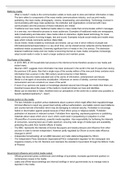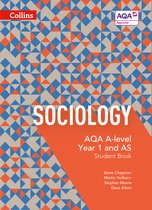Defining media:
- What is media?; media is the communication outlets or tools used to store and deliver information or data.
The term refers to components of the mass media communications industry, such as print media,
publishing, the news media, photography, cinema, broadcasting, and advertising. Technology involved in
communicating with large mass audiences, the institution and organisations concerned with mass
communication and the products of those institutions are ‘media’
- Traditional and new media; traditional media refers to mass media that communicates uniform messages
in a one-way, non-interactive process to mass audiences. Examples of traditional media are newspapers,
radio broadcasting and television. New media refers to interactive, digital based technology for mass
media communication involving images, text and sound. Examples include social media and mobile news
apps which include comments sections (Daily Mail).
- Social media; media created by individuals and shared, can go viral in which millions of people see
information/pictures/news/videos in a very short time, can be shared across networks and be featured in
traditional media occasionally. Extremely significant form of media in the 21st century. The distinction
between traditional media and new media is becoming blurred as mass media companies increasingly
adopt social media in order to reach a larger audience and maintain power.
The Power of the media:
- In 2019, 96% of UK households had access to the internet at home therefore access to new media and
instant news.
- Bauman 2007; suggests more information has been produced in the world in the last 30 years than during
the previous 5,00 years. Also that a single copy of the sunday edition of the new york times contains more
information than a person in the 18th century would consume in their lifetime.
- Society has become media saturated and is the centre of information, entertainment and leisure
- Media is a ket agent of secondary socialization, influences on sense of identity, common knowledge,
consumerism and can construct our views of the world.
- If most of our opinions are based on knowledge obtained second hand through the media then there are
important issues about the power of the media to mould and shape our lives and identities.
- Media can be distorted or false, therefore twist our perceptions of the world into a certain way (possibly to
benefit capitalism/patriarchy? - bias?)
Formal control on the media:
- The law; forbidden to publish untrue statements about a person which might affect their reputation/image.
Criminal offence to report any government activity without authorization. Journalists cannot report defence
and counter terrorist information which may be damaging to national security. Forbidden to encourage
hatred or discrimation against people because of their ethnic group or religious beliefs. Forbidden
publication of obscene or indecent content. Forbidden from reporting, expressing opinions or publishing
materials about cases which are in court, which could result in jeopardizing or prejudice in a trial.
- Ofcom(office of communications); powerful media regulator. Has responsibility for furthering the interests
of consumers, securing best use of radio spectrum, ensuring wide range of media type and availability,
protecting the public from harmful effects of media.
- The BBC; represents the interests of licence fee-payers and resists pressure and influence from other
sources in order to remain independent. However partly regulated by Ofcom so some state influence.
Changed in 2016?
- Independent broadcasting; all non-BBC television and radio stations.Regulated by Ofcom
- The Independent Press Standards Organisation(IPSO); independent regulator for the newspaper and
magazine industry in the UK. Monitors and maintains the standard of journalism through the Editors’ Code
of Practice.
Government influence and control media output:
- Official government press conferences and briefings of journalists, increases government position on
contemporary issues in the media.
- Leaks and off-the-record briefings are informal briefings in which governments try to manage what is
reported in the media
, - Government spin doctors try to manipulate the media by providing a favourable slant to potentially
unpopular or controversial news, alternatively try to bury bad news by releasing information that shows the
government in bad light at the same time as the nation's media is distracted by a more sensational story,
or other tactics.
- Refusal to issue broadcasting licenses to those whom it deems unfit and unsuitable.
- Refusal to allow the use of some forms of computer software and use of filtering and surveillance to block
access to some sites.
- Electronic surveillance of emails, monitoring of websites and intercepts of mobile calls.
Ownership of the media:
- The ownership of main mass media is concentrated into the hands of a few large companies which are
interested in making profits.
- Around 86% of national daily and sunday newspapers are controlled by just four companies, over half by
just 2 (Daily mail and General Trust)
- Rupert Murdoch; owns hundreds of local, national and international publishing outlets including the sun,
the times, the daily telegraph, the australian, the wall street journal and the new york post.
- Bagdikian (1989); even 25 years ago the concentration of media ownership meant that a handful of global
media companies and moguls (‘lords of the global village’) dominated the world's mass media and
controlled every step in the information, creation and production process. Confirmed by the 2011
Fortune500 list.
- ‘Each of the five corporations and their leaders have more communications power than was exercised by
any despot or dictatorship in history’(Bagdikian 1989)
- (Bagdikian 1989) features of media ownership;
Term: Definition:
Concentration of Most of the media is in the hands of a few large companies
ownership -
Vertical integration - The concentration of ownership within a single medium. One company
owning several newspapers and owning all stages in the production and
distribution
Horizontal integration - Cross media ownership. Ownership in a range of media such as
newspapers, magazines, books, television, film, music, websites, and
internet service providers
Global ownership - Media ownership is international, the owners have global media empires with
interests in many different countries of the world
Conglomeration and Companies with a diversity of interests in a wide variety of products besides
diversification - the media
Global conglomeration - Companies operating in global markets producing media products
Synergy - What happens when media companies produce, promite and sell a product in
a variety of forms in collaboration with other companies thereby promoting
and enhancing sales of that product and related spin offs.
Technological Media companies try to maximise sales of their products by promoting and
convergence - making them available in a variety of formats which can be accessed on a
single device
Pluralist explanation of the media:
- Pluralism; argue that power in (democratic, free market) societies is spread out amongst a diverse
group with competing interests. Not concentrated in the hands of bourgeoisie as marxism
suggests. There is no one power.
, - Argue that the media is driven by the fight for profits in high circulation and audience figures.
- There are a wide range of media types reflecting a huge range of audience interests and ideas,
including ones that challenge dominant ideology.
- The only control over the media is consumer choice, and the media have to serve their audiences
views or else they will go out of business.
- The competition prevents any one owner from dominating the media, media regulators (Ofcom)
help prevent this from happening as well.
- Pluralists argue that the media are generally free from any government or direct owner control and
can present whatever view they want.
- Audiences are free to choose in a pick ‘n’ mix approach, they can accept, reject, reinterpret or
ignore content in accordance to their views.
- New globalised digital media, social media, the internet enable all sorts of views to be represented
through citizen journalism.
- People, not just large media corporations, can publish their thoughts to vast numbers of people (ie,
twitter). This undermines the Marxist view of control of media content by media owners.
- [Criticism] media owners appoint editors and strongly influence who is appointed at senior levels.
Owners, top managers and editors often share a similar outlook on the world.
- [Criticism] media producers have some independence but they work within constraints placed on
them by owners. News is collected from a few news companies and is often paid for by the media
owners.
- [Criticism] not all groups in society have equal influence on editors and journalists to get their
views across. The main sources of information tend to be from the groups which are the most
powerful and influential member of society therefore their views are given greater weight than
those of less powerful groups.
- [Criticism] only very rich groups have the resources required to launch major media companies
and get their views across independently.
- [Criticism] the pressure to attract audiences limits media choice instead of increasing it. Barnett
and Seymour showed how the media are becoming more market-oriented and entertainment-
centred leading to less serious journalism that limits public knowledge of affairs (Tabloidization).
Therefore the media does not represent a range of opinions as pluralists suggest.
- [Criticism] Hegemonic theorists argue that people have been socialised by the media into the belief
that they are being provided with what they want. The media has created their tastes, so what
audiences want is really what the media owners want.
- Neopluralism (new pluralism); does not assume that complexity implies fairness of representation,
more realistic view that it is not as positive that it seems. Recognise choice but see the constraints
on choice.
The manipulative (instrumentalist, traditional marxist) approach:
- Media owners (the media moguls) directly control media content, manipulate that content and
media audiences, to protect their profits and spread the dominant ideology. Meaning media
editors, managers and journalists can only run the boundaries set by the owners, this leads to
bias, one sided reports about ideas or groups which threaten the interests of the dominant class
and status quo.
- Status quo; the existing arrangements in society
- Curran and seaton 2010; found evidence which suggests media owners did interfere and
manipulate newspaper content to protect their own interests or supported/withheld criticisms of
governments which defended those interests.
- Example; Rupert Murdoch of News Corporation was arguing strongly in an interview for a war in
Iraq, then all of his 175 newspapers around the world backed him. He also admitted to being
‘hands on both economically and editorially’ and exercised editorial control on major issues like
which party to back in the general election or policy in Europe, although laws prevented him doing
this in all papers.
- Harold Evans (2011,2012); suggested Murdock continued to undermine editorial independence
and pressed editorial staff to adopt his right-wing, conservative views.





